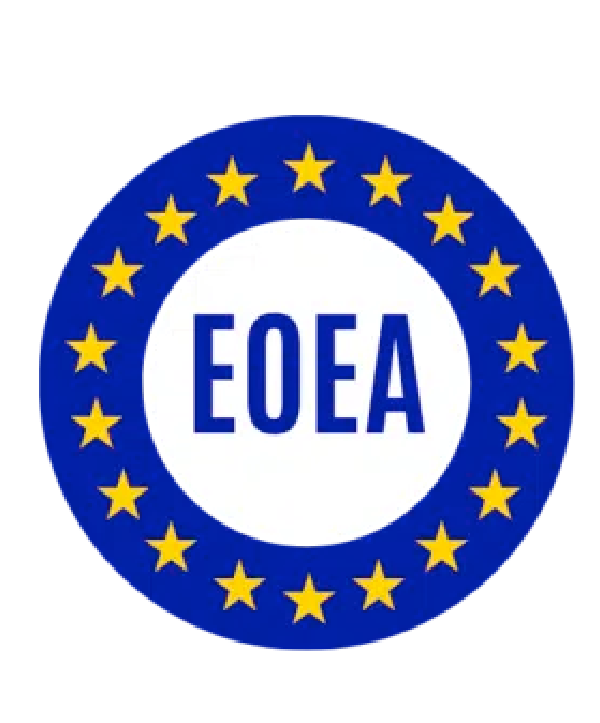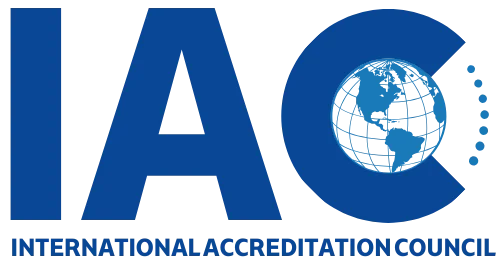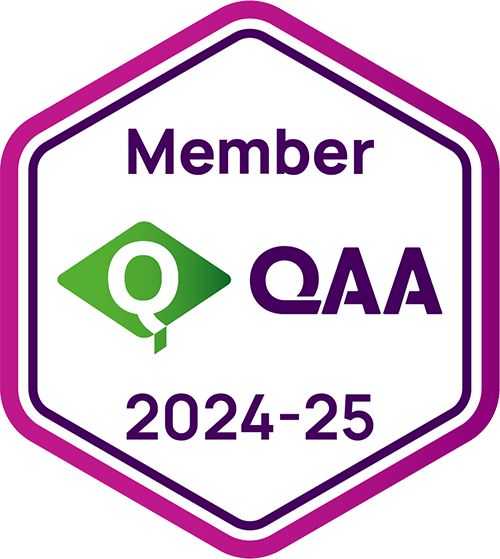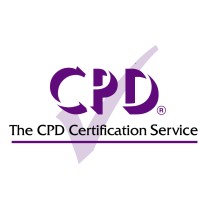Privacy Policy
2024-09-30 15:55Privacy Policy
Cambridge Business Academy Attendance
and Absence Policy
Purpose
The purpose of this policy is to outline the attendance requirements and
procedures for managing student absences at Cambridge Business Academy. This
policy ensures that students understand the importance of regular attendance in
business management courses and the procedures for reporting and managing
absences.
Scope
This policy applies to all students enrolled in undergraduate, postgraduate,
and professional development programs in business management at Cambridge
Business Academy.
Principles
Commitment: Regular attendance is crucial for academic success and
personal development in business studies. Students are expected to attend all
scheduled classes, lectures, seminars, and other academic activities.
Responsibility: Students are responsible for managing their attendance
and informing the academy of any absences in a timely manner.
Support: Cambridge Business Academy is committed to supporting students
who face difficulties that affect their attendance.
Attendance Requirements
Minimum Attendance: Students must attend at least 75% of all scheduled
classes and academic activities. Failure to meet this requirement may result in
disciplinary action, including academic probation or dismissal from the
program.
Recording Attendance: Attendance will be recorded at the beginning of
each class. Students must ensure their presence is noted by the instructor.
Reporting Absences
Short-Term Absences: For absences of up to three consecutive days,
students must inform their instructor and provide a valid reason. Notification
can be done via email or through the academy’s online portal.
Long-Term Absences: For absences longer than three consecutive days,
students must notify the Student Services Office and provide supporting
documentation, such as a medical certificate or other relevant documents.
Planned Absences: For planned absences, such as religious holidays or scheduled
appointments, students must inform their instructor and the Student Services
Office at least one week in advance.
Authorized Absences
Medical Reasons: Absences due to illness or medical appointments must be
supported by a medical certificate.
Personal Reasons: Absences due to personal reasons, such as family
emergencies, must be communicated to the Student Services Office with
appropriate documentation.
Academic Reasons: Absences for academic purposes, such as attending
conferences or participating in field trips, must be approved by the instructor
in advance.
Unauthorized Absences
Unauthorized absences are those not reported or approved according to the
procedures outlined in this policy. Unauthorized absences may result in
penalties, including a reduction in grades or other disciplinary actions.
Consequences of Poor Attendance
Warnings: Students with poor attendance will receive a warning letter
outlining the importance of attendance and the consequences of continued
absences.
Academic Probation: Students who fail to improve their attendance after
receiving a warning may be placed on academic probation.
Dismissal: Continued failure to meet attendance requirements may result
in dismissal from the program.
Support for Students
Counseling Services: Students facing difficulties that affect their
attendance are encouraged to seek support from the academy’s counseling
services.
Academic Support: Additional academic support, such as tutoring or study
groups, is available for students who need assistance catching up on missed
work.
Review of Policy
This policy will be reviewed regularly to ensure it remains up-to-date and
relevant. Any changes to the policy will be communicated to students and staff
and published on the academy website.
Contact Information
For any queries related to attendance and absences, please contact the Student
Services Office at:
Email: info@cba.edu.eu
Website: https://cba.edu.eu/
____________________________________________________________________________________
Cambridge Business Academy Assessment
and Examination Policy
Purpose
The purpose of this policy is to provide clear guidelines and procedures for
the assessment and examination of students at Cambridge Business Academy. This
policy ensures that assessments are conducted fairly, consistently, and
transparently.
Scope
This policy applies to all students enrolled in undergraduate, postgraduate,
and professional development programs in business management at Cambridge
Business Academy.
Principles
- Fairness: All assessments and
examinations will be conducted in a fair and unbiased manner.
- Transparency: Assessment criteria
and procedures will be clearly communicated to all students.
- Academic Integrity: Students are
expected to adhere to the highest standards of academic integrity in all
assessments and examinations.
Types of Assessment
- Formative Assessment: These ongoing
assessments provide feedback to students and help improve their learning.
Examples include quizzes, assignments, and class participation.
- Summative Assessment: These
assessments contribute to the final grade for a course, including final
exams, major projects, and term papers.
Assessment Criteria
Assessment criteria will be clearly outlined in the course syllabus provided at
the beginning of each term. This includes the weighting of different assessment
components, grading rubrics, and expectations for each assignment.
Examination Procedures
- Scheduling: Examination schedules
will be published at least four weeks before the examination period.
- Attendance: Students must attend
all scheduled examinations. In cases of illness or other valid reasons,
students must notify the examination office as soon as possible and
provide supporting documentation.
- Conduct: Students must adhere to
the examination rules and regulations, communicated before the examination
period. Any form of cheating or misconduct will be addressed according to
the academy’s academic integrity policy.
- Special Accommodations: Students
requiring special accommodations for examinations must contact the Student
Services Office at least two weeks before the examination period.
Submission of Assignments
- Deadlines: All assignments must be
submitted by the specified deadlines. Late submissions will incur
penalties as outlined in the course syllabus.
- Format: Assignments must be
submitted in the format specified by the instructor, which may include
electronic or hard copy submission.
- Originality: All assignments must
be original work. Plagiarism will not be tolerated and will be addressed
according to the academy’s academic integrity policy.
Grading and Feedback
- Grading: Instructors will grade
assessments based on the criteria outlined in the course syllabus. Grades
will be posted within a reasonable timeframe.
- Feedback: Instructors will provide
constructive feedback on assessments to help students improve their
performance, delivered in a timely manner.
Appeals and Reassessments
- Appeals: Students wishing to appeal
a grade must submit a formal appeal in writing to the Examination Office
within 14 days of receiving the grade, including a detailed explanation of
the grounds for the appeal.
- Reassessments: If a reassessment is
granted, the student will be notified of the procedures and any associated
fees.
Record Keeping
- Confidentiality: All assessment
records will be kept confidential and accessible only to authorized
personnel.
- Retention: Assessment records will
be retained for a minimum of five years.
Review of Policy
This policy will be reviewed regularly to ensure it remains up-to-date and
relevant. Any changes will be communicated to students and staff and published
on the academy website.
Contact Information
For any queries related to assessments and examinations, please contact the
Examination Office at:
Email: info@cba.edu.eu
____________________________________________________________________________________
Cambridge Business Academy Policy on
Financial Transactions
Purpose
The purpose of this policy is to provide clear guidelines on the management,
recording, and reporting of financial transactions at Cambridge Business
Academy. This policy ensures financial integrity, transparency, and
accountability in all financial activities.
Scope
This policy applies to all financial transactions conducted by Cambridge
Business Academy, including those carried out by staff, faculty, and students
on behalf of the academy.
Principles
- Transparency: All financial
transactions must be conducted transparently and properly documented.
- Accountability: Individuals
involved in financial transactions must be accountable for their actions
and ensure compliance with this policy.
- Integrity: Financial transactions
must be conducted with honesty and integrity, adhering to the highest
ethical standards.
- Compliance: All financial
activities must comply with relevant laws, regulations, and academy
policies.
Types of Financial Transactions
- Revenue Transactions: Includes
tuition fees, grants, donations, and other income received by the academy.
- Expenditure Transactions: Includes
payments for goods and services, salaries, scholarships, and other
expenses incurred by the academy.
- Transfers: Includes internal
transfers between academy accounts and funds.
Responsibilities
- Finance Department: Responsible for
overseeing all financial transactions, maintaining accurate financial
records, and ensuring compliance with this policy.
- Staff and Faculty: Must follow the
procedures outlined in this policy when conducting financial transactions
on behalf of the academy.
- Students: Must adhere to this
policy when involved in financial activities related to academy functions
or student organizations.
Procedures for Financial Transactions
- Authorization: All financial
transactions must be authorized by an appropriate authority within the
academy. Authorization levels will vary depending on the nature and amount
of the transaction.
- Documentation: All transactions
must be supported by appropriate documentation, such as invoices,
receipts, contracts, and purchase orders.
- Recording: Transactions must be
recorded accurately and promptly in the academy’s financial systems. This
includes entering details of the transaction, the amount, the date, and
the parties involved.
- Approval: Transactions must be
reviewed and approved by the designated authority to ensure accuracy and
compliance with this policy.
- Reconciliation: Regular
reconciliation of accounts must be conducted to ensure that all
transactions are accurately recorded and
discrepancies are promptly addressed.
Financial Reporting
- Monthly Reports: The Finance
Department will prepare and distribute monthly financial reports to the
academy administration, detailing income, expenses, and account balances.
- Annual Reports: An annual financial
report will be prepared and reviewed by an external auditor. The report
will be presented to the academy administration and made available to
stakeholders.
Internal Controls
- Segregation of Duties: Duties
related to financial transactions must be appropriately segregated to
prevent fraud and errors. No single individual should have control over
all aspects of any significant financial transaction.
- Audit: Regular internal audits will
be conducted to assess compliance with this policy and the effectiveness
of internal controls. Findings will be reported to the academy
administration for review and action.
Handling Cash and Checks
- Cash Handling: Cash transactions
should be minimized. When cash handling is necessary, it must be conducted
securely, with appropriate documentation and authorization.
- Check Handling: Checks received by
the academy must be promptly deposited into the appropriate academy
account. Checks should be endorsed with the academy’s name and “For
Deposit Only” upon receipt.
Compliance and Violations
- Compliance: All members of the
academy community must comply with this policy. Training and resources
will be provided to ensure understanding and adherence.
- Violations: Any violations of this
policy may result in disciplinary action, up to and including termination
of employment or enrollment. Suspected fraud or financial misconduct will
be investigated and reported to the appropriate authorities.
Review of Policy
This policy will be reviewed regularly to ensure it remains up-to-date and
effective. Any changes to the policy will be communicated to the academy
community and published on the academy website.
Contact Information
For any queries related to financial transactions, please contact the Finance
Department at:
Email: info@cba.edu.eu
____________________________________________________________________________________
Cambridge Business Academy Admission
Policy
Purpose
The purpose of this policy is to outline the admission process, criteria, and
requirements for applicants seeking entry to Cambridge Business Academy. This
policy ensures a fair, transparent, and consistent approach to admissions.
Scope
This policy applies to all applicants for undergraduate, postgraduate, and
professional development programs in business management at Cambridge Business
Academy.
Principles
- Equality and Diversity: Cambridge
Business Academy is committed to promoting equality and diversity and
ensuring that all applicants are treated fairly and without discrimination
based on race, ethnicity, gender, disability, religion, age, or any other
characteristic.
- Transparency: The admission process
will be transparent, and criteria will be clearly communicated to all
applicants.
- Merit-Based: Admission decisions
will be based on the applicant’s academic merit, potential, and
suitability for the chosen program.
Admission Criteria
- Academic Qualifications: Applicants
must meet the minimum academic qualifications specified for each program.
These will vary depending on the level and subject of the program.
- English Language Proficiency:
Non-native English speakers must demonstrate proficiency in English
through an accepted language test (e.g., IELTS, TOEFL) or equivalent
qualification.
- Personal Statement: Applicants are
required to submit a personal statement outlining their motivation, goals,
and suitability for the program.
- References: Two academic or
professional references must be provided to support the application.
- Interview: Some programs may
require an interview as part of the admission process.
Application Process
- Application Form: Applicants must
complete the online application form available on the Cambridge Business
Academy website (https://cba.edu.eu).
- Supporting Documents: All required
supporting documents (e.g., transcripts, certificates, personal statement,
references) must be submitted along with the application form.
- Application Fee: An application
fee, if applicable, must be paid at the time of submission.
- Deadlines: Applications must be
submitted by the specified deadlines. Late applications may be considered
at the discretion of the admissions committee.
Selection Process
- Initial Review: Applications will
be reviewed to ensure they meet the minimum entry requirements.
- Assessment: Qualified applications
will be assessed based on academic performance, personal statement,
references, and interview performance (if applicable).
- Decision: Admission decisions will
be communicated to applicants within a specified timeframe. Successful
applicants will receive an offer letter, while unsuccessful applicants
will be notified and provided with feedback where possible.
Appeals and Complaints
- Appeals: Applicants who wish to
appeal an admission decision must submit a formal appeal in writing within
14 days of receiving the decision.
- Complaints: Any complaints about
the admission process should be addressed to the Admissions Office.
Complaints will be investigated in accordance with the academy’s
complaints procedure.
Acceptance of Offer
- Acceptance: Successful applicants
must formally accept their offer by the specified deadline.
- Deposit: A deposit may be required
to secure a place in the program. This will be outlined in the offer
letter.
- Enrolment: Upon acceptance,
applicants will receive information about enrolment and orientation.
Changes to Policy
Cambridge Business Academy reserves the right to make changes to this policy as
necessary. Any changes will be communicated to applicants and published on the
academy website.
Contact Information
For any queries related to the admission process, please contact the Admissions
Office at:
Email: info@cba.edu.eu
____________________________________________________________________________________
Cambridge Business Academy Privacy
Policy
Introduction
Cambridge Business Academy is committed to protecting and respecting your
privacy. This Privacy Policy explains how we collect, use, disclose, and
safeguard your personal information when you visit our website, apply for
admission, or interact with us in other ways. By using our services or
providing us with your personal information, you agree to the practices
described in this policy.
1. Information We Collect
We may collect and process the following types of personal information:
- Personal Identification Information: Name, contact details (email address, phone number), date of
birth, and address.
- Academic Information: Educational
history, transcripts, application materials, and academic records relevant
to business studies.
- Financial Information: Payment
details for application fees, tuition fees, and other financial
transactions related to your enrollment in business programs.
- Health Information: Medical or
health-related information if required for specific programs or services.
- Technical Information: IP address,
browser type, operating system, and usage data collected through cookies
and similar technologies.
2. How We Use Your Information
We use your personal information for the following purposes:
- Admissions and Enrollment: To
process your application, evaluate your qualifications, and communicate
with you about admission decisions for our business programs.
- Academic Services: To manage your
academic records, provide educational services, and support your learning
experience in business studies.
- Financial Transactions: To process
payments, manage accounts, and handle financial transactions related to
your application and enrollment in business courses.
- Communication: To send you
important updates, notifications, and promotional information related to
Cambridge Business Academy.
- Improvement: To analyze usage
patterns and improve our website, services, and overall user experience.
- Legal Compliance: To comply with
legal obligations, resolve disputes, and enforce our policies.
3. Sharing Your Information
We may share your personal information with:
- Service Providers: Third-party
service providers who assist us in managing admissions, processing
payments, and delivering services related to business education.
- Educational Institutions: Partner
institutions or organizations involved in your business education or
research.
- Legal Authorities: Regulatory
bodies, law enforcement agencies, or other authorities when required by
law or to protect our rights.
- Affiliates: Cambridge Business
Academy affiliates or partners for the purposes described in this policy.
4. Data Security
We implement appropriate technical and organizational measures to protect your
personal information from unauthorized access, disclosure, alteration, or
destruction. However, no method of transmission over the internet or electronic
storage is completely secure, so we cannot guarantee absolute security.
5. Data Retention
We retain your personal information for as long as necessary to fulfill the
purposes for which it was collected, comply with legal obligations, and resolve
disputes. When your information is no longer needed, we will securely dispose
of it.
6. Your Rights
You have the following rights regarding your personal information:
- Access: You can request access to
the personal information we hold about you.
- Correction: You can request
corrections to inaccurate or incomplete personal information.
- Deletion: You can request the
deletion of your personal information, subject to legal and contractual
obligations.
- Objection: You can object to the
processing of your personal information for certain purposes.
- Withdrawal of Consent: If we
process your information based on consent, you can withdraw your consent
at any time.
To exercise your rights, please contact us using the information provided below.
7. Cookies and Tracking Technologies
We use cookies and similar tracking technologies to collect and analyze
information about your use of our website. You can manage your cookie
preferences through your browser settings. For more information about our use
of cookies, please see our Cookie Policy.
8. Changes to This Policy
We may update this Privacy Policy from time to time to reflect changes in our
practices or legal requirements. We will notify you of significant changes by
posting the updated policy on our website and updating the effective date.
9. Contact Information
If you have any questions or concerns about this Privacy Policy or how we
handle your personal information, please contact us at:
Email: info@cba.edu.eu
Website: https://cba.edu.eu/
____________________________________________________________________________________
Cambridge Business Academy Terms of
Service
Introduction
Welcome to Cambridge Business Academy. These Terms of Service govern your use
of our website, services, and interactions with the academy. By accessing or
using our services, you agree to these terms. If you do not agree with these
terms, please do not use our services.
1. Use of Services
- Eligibility: To use our services,
you must be at least 18 years old or have the consent of a parent or
guardian.
- Registration: You may be required
to create an account to access certain services. You agree to provide
accurate, complete, and up-to-date information when registering or using
our services.
- Responsibility: You are responsible
for maintaining the confidentiality of your account information and for
all activities that occur under your account. You agree to notify us
immediately of any unauthorized use of your account.
2. Academic Programs and Services
- Enrollment: Enrollment in academic
programs is subject to acceptance by Cambridge Business Academy and
compliance with admission requirements. We reserve the right to modify or
discontinue programs and services at our discretion.
- Fees: Fees for application,
tuition, and other services are outlined on our website. You agree to pay
all applicable fees according to the payment terms specified.
3. Intellectual Property
- Ownership: All content and
materials on our website, including text, graphics, logos, and images, are
the property of Cambridge Business Academy or its licensors and are
protected by intellectual property laws.
- Usage: You may not reproduce,
distribute, or create derivative works from any content on our website
without our prior written consent.
4. User Conduct
- Prohibited Activities: You agree
not to engage in any activities that are illegal, fraudulent, or harmful
to others. This includes, but is not limited to, harassment, defamation,
and unauthorized access to our systems.
- Content Submission: Any content you
submit to us, including feedback, suggestions, or other materials, becomes
our property. You grant us a perpetual, worldwide, royalty-free license to
use, modify, and distribute such content.
5. Privacy
- Privacy Policy: Your use of our
services is governed by our Privacy Policy, which describes how we
collect, use, and protect your personal information. By using our
services, you consent to our Privacy Policy.
6. Limitation of Liability
- Disclaimer: Our services are
provided "as is" and "as available" without warranties
of any kind. We disclaim all warranties, whether express or implied,
including but not limited to warranties of merchantability and fitness for
a particular purpose.
- Liability: To the fullest extent
permitted by law, Cambridge Business Academy shall not be liable for any
indirect, incidental, consequential, or punitive damages arising from or
related to your use of our services.
7. Termination
- Termination by Us: We reserve the
right to terminate or suspend your access to our services at any time,
with or without cause, and with or without notice.
- Termination by You: You may
terminate your account by contacting us. Upon termination, you will no
longer have access to our services, but any obligations or liabilities
incurred prior to termination will remain.
8. Changes to Terms
- Modifications: We may update these
Terms of Service from time to time. Any changes will be effective when we
post the revised terms on our website. Your continued use of our services
constitutes your acceptance of the updated terms.
9. Governing Law
- Jurisdiction: These Terms of
Service are governed by and construed in accordance with the laws of the
United Kingdom. Any disputes arising from or related to these terms or your use of our services shall be subject to
the exclusive jurisdiction of the courts of the United Kingdom.
10. Contact Information
If you have any questions or concerns about these Terms of Service, please
contact us at:
Email: info@cba.edu.eu
____________________________________________________________________________________
Cambridge Business Academy Academic
Integrity Policy
Purpose
The purpose of this policy is to promote academic integrity and ensure that all
students at Cambridge Business Academy understand and adhere to the highest
standards of academic honesty. This policy outlines the expectations,
responsibilities, and consequences related to academic misconduct.
Scope
This policy applies to all students enrolled in undergraduate, postgraduate,
and professional development programs in business management at Cambridge
Business Academy.
Principles
- Honesty: Students must be truthful
and honest in all academic work and interactions.
- Fairness: All academic work should
be conducted fairly, without cheating or plagiarism.
- Responsibility: Students are
responsible for their own work and for upholding the standards of academic
integrity.
Definitions of Academic Misconduct
Academic misconduct includes, but is not limited to, the following behaviors:
- Plagiarism: Using someone else’s
work, ideas, or words without proper attribution. This includes copying
and pasting text from the internet, books, or other sources without
citation.
- Cheating: Using unauthorized
materials, information, or devices in any academic exercise. This includes
copying from another student’s work, using cheat sheets, or obtaining exam
questions in advance.
- Fabrication: Falsifying or
inventing any information, data, or citation in an academic exercise.
- Collusion: Working with others on
an assignment intended to be completed individually.
- Multiple Submissions: Submitting
the same or substantially similar work for credit in more than one course
without the permission of all instructors involved.
- Misrepresentation: Misleading
instructors or other university officials about academic work. This
includes lying about reasons for absences or extensions.
Responsibilities
- Students:
- Understand and adhere to the principles of academic integrity.
- Complete all academic work honestly and independently,
unless collaboration is explicitly permitted.
- Seek clarification from instructors if unsure about what
constitutes academic misconduct.
- Instructors:
- Clearly communicate expectations for academic integrity and
provide guidance on proper citation and collaboration.
- Monitor and report any suspected cases of academic misconduct.
- University:
- Provide resources and support to help students understand and
uphold academic integrity.
- Investigate and address all reported cases of academic
misconduct fairly and consistently.
Procedures for Handling Academic
Misconduct
- Reporting:
Any suspected case of academic misconduct should be reported to the instructor or the Academic Integrity Committee. - Investigation:
The Academic Integrity Committee will investigate the reported case, gathering evidence and speaking with involved parties. - Decision:
The committee will determine whether academic misconduct occurred and decide on appropriate consequences. - Appeal:
Students have the right to appeal the committee’s decision. Appeals must be submitted in writing within 14 days of the decision.
Consequences of Academic Misconduct
Consequences for academic misconduct may vary depending on the severity and
nature of the offense. Possible consequences include:
- Warning: A formal warning may be
issued for minor or first-time offenses.
- Grade Penalty: The student’s grade
for the assignment or course may be reduced.
- Resubmission: The student may be
required to redo the assignment or complete an alternative assignment.
- Probation: The student may be
placed on academic probation.
- Suspension or Dismissal: For severe
or repeated offenses, the student may be suspended or dismissed from the
academy.
Education and Prevention
- Workshops: The academy will offer
workshops on academic integrity, proper citation practices, and avoiding
plagiarism.
- Resources: Students will have
access to resources such as writing centers, online tutorials, and
academic advisors to support their understanding and practice of academic
integrity.
Review of Policy
This policy will be reviewed regularly to ensure it remains up-to-date and
relevant. Any changes to the policy will be communicated to students and staff
and published on the academy website.
Contact Information
For any queries related to academic integrity, please contact the Academic
Integrity Committee at:
Email: info@cba.edu.eu
____________________________________________________________________________________
Cambridge Business Academy Complaints
and Grievances Policy
Purpose
The purpose of this policy is to provide a clear and fair process for students
to raise complaints and grievances. Cambridge Business Academy is committed to
addressing student concerns promptly and effectively to ensure a positive
learning environment.
Scope
This policy applies to all students enrolled in undergraduate, postgraduate,
and professional development programs in business management at Cambridge
Business Academy. It covers complaints related to academic matters,
administrative services, facilities, and any other aspects of the student
experience.
Principles
- Fairness: All complaints and
grievances will be handled impartially and without discrimination.
- Transparency: The process for
handling complaints and grievances will be clear and accessible to all
students.
- Confidentiality: All information
related to complaints and grievances will be kept confidential and only
shared with relevant parties.
- Timeliness: Complaints and
grievances will be addressed in a timely manner.
Types of Complaints and Grievances
- Academic: Issues related to
grading, course content, teaching methods, or academic advising.
- Administrative: Issues related to
enrollment, fees, or other administrative services.
- Facilities: Issues related to
campus facilities, such as classrooms, libraries, or housing.
- Other: Any other issues affecting
the student experience at Cambridge Business Academy.
Informal Resolution
- Initial Discussion: Students are
encouraged to resolve complaints informally by discussing the issue with
the relevant party (e.g., instructor, administrative staff) as soon as
possible.
- Mediation: If the issue is not
resolved through initial discussion, students may request mediation from
the Student Services Office.
Formal Complaint Procedure
- Submission: If informal resolution
is not successful, students may submit a formal complaint in writing to
the Student Services Office. The complaint should include a detailed
description of the issue, any supporting evidence, and the desired
outcome.
- Acknowledgment: The Student
Services Office will acknowledge receipt of the complaint within five
working days and provide an estimated timeline for resolution.
- Investigation: The complaint will
be investigated by an appointed officer who will gather evidence and speak
with relevant parties.
- Decision: The appointed officer
will make a decision and communicate the outcome
to the student in writing. The decision will include any proposed actions
to resolve the complaint.
Grievance Procedure
- Appeal: If the student is not
satisfied with the outcome of the formal complaint, they may submit a
written appeal to the Grievance Committee within 14 days of receiving the
decision. The appeal should include reasons for the appeal and any
additional evidence.
- Review: The Grievance Committee
will review the appeal, conduct any further investigation needed, and make
a final decision.
- Outcome: The decision of the
Grievance Committee will be communicated to the student in writing and is
final.
Support and Advice
- Advisors: Students may seek advice
and support from academic advisors, counselors, or the Student Services
Office at any stage of the complaint or grievance process.
- Representation: Students have the
right to be accompanied by a representative (e.g., friend, family member,
or advisor) during any meetings related to the complaint or grievance.
Monitoring and Review
- Record Keeping: Records of all
complaints and grievances will be maintained by the Student Services
Office and reviewed periodically to identify any trends or areas for
improvement.
- Policy Review: This policy will be
reviewed regularly to ensure it remains up-to-date and effective. Any
changes to the policy will be communicated to students and staff and
published on the academy website.
Contact Information
For any queries related to complaints and grievances, please contact the
Student Services Office at:
Email: info@cba.edu.eu
_____________________________________________________________________________
Cambridge Business Academy Student
Conduct Policy
1. Purpose
The purpose of this policy is to set forth the standards of conduct expected of
all students at Cambridge Business Academy. It aims to create a safe,
respectful, and inclusive environment conducive to academic excellence and
personal development.
2. Scope
This policy applies to all students enrolled in undergraduate, postgraduate,
and professional development programs in business management at Cambridge
Business Academy. It covers behavior on campus, during university-sponsored
activities, and in all interactions related to the academy.
3. Principles
- Respect: Students must treat all
members of the university community with respect and dignity.
- Integrity: Students are expected to
act honestly and uphold the highest standards of integrity.
- Responsibility: Students are
responsible for their actions and must adhere to academy policies and
procedures.
- Community: Students must contribute
to a positive and inclusive academy community.
4. Standards of Conduct
- Academic Integrity: Students must
adhere to the academy’s Academic Integrity Policy, which includes
guidelines on plagiarism, cheating, and other forms of academic
misconduct.
- Respect for Others: Students must
not engage in behavior that harasses, discriminates, or bullies others
based on race, ethnicity, gender, sexual orientation, religion,
disability, or any other characteristic.
- Safety and Security: Students must
not engage in behavior that threatens the safety and security of
themselves or others, including physical violence, threats, and possession
of weapons.
- Substance Use: The use, possession,
or distribution of illegal drugs and alcohol on campus or during
university-sponsored activities is strictly prohibited.
- Property: Students must respect
university property and the property of others. Vandalism, theft, and
unauthorized use of property are prohibited.
- Compliance: Students must comply
with all academy policies, local laws, and regulations.
5. Reporting Misconduct
- Informal Reporting: Students are
encouraged to address minor misconduct informally by discussing the issue
with the involved party, if safe and appropriate.
- Formal Reporting: For serious or
unresolved issues, students should report misconduct to the Student
Conduct Office. Reports can be made in person, via email, or through the
academy’s online reporting system.
6. Investigation and Disciplinary
Process
- Investigation: The Student Conduct
Office will investigate all reports of misconduct, gathering evidence,
interviewing witnesses, and reviewing relevant documents.
- Hearing: If sufficient evidence of
misconduct is found, a hearing will be conducted. The student involved
will have the opportunity to present their case and respond to the
evidence.
- Decision: Based on the
investigation and hearing, the Student Conduct Office will make a decision and determine appropriate disciplinary
actions.
- Appeal: Students have the right to
appeal the decision. Appeals must be submitted in writing within 14 days
of receiving the decision. The appeal will be reviewed by the Appeals
Committee, whose decision is final.
7. Disciplinary Actions
Disciplinary actions for misconduct may include, but are not limited to:
- Warning: A formal warning for minor
violations.
- Probation: The student may be
placed on probation for a specified period.
- Suspension: The student may be
suspended from the academy for a specified period.
- Expulsion: The student may be
permanently expelled from the academy.
- Restitution: The student may be
required to make restitution for any damages or losses caused.
8. Support and Resources
- Counseling Services: The academy
provides counseling services to support students dealing with personal or
academic challenges.
- Mediation Services: Mediation
services are available to help resolve conflicts and disputes among
students.
- Advisors: Students may seek advice
and support from academic advisors or the Student Services Office at any
stage of the disciplinary process.
9. Review of Policy
This policy will be reviewed regularly to ensure it remains up-to-date and
relevant. Any changes to the policy will be communicated to students and staff
and published on the academy website.
Contact Information
For any queries related to student conduct, please contact the Student Conduct
Office at:
Email: info@cba.edu.eu











